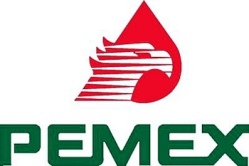Inaccuracies involving Mexico occur all too frequently in the press. This is the first of an occasional series recording such Mexico-related imprecisions.
Canwest News Service claims to be “the best source in Canada for editorial content because we have more journalists than any other organization.” Maybe its journalists are better than its headline writers.
The evidence? Canwest’s report (20 March 2010) about a recent oil discovery by Shell in the Gulf of Mexico, headlined Mexican oil find ‘significant’. Apparently, Canwest’s headline writers do not realize that much of the Gulf of Mexico is not actually Mexican. A more accurate title for the Canwest story would have been US oil find ‘significant‘.
The USA and Mexico share the Gulf, with periodic arguments about the precise offshore limits of each country’s jurisdiction. A few years ago, it was alleged, probably without foundation, that the USA was already “sucking the oil” out from joint oil fields that straddled the divide.
What is certain is that the USA has encouraged the development of oil fields in relatively deep water (more than 500 meters deep or 1,640 feet) in the Gulf, which require advanced deep-water drilling techniques, and the expertise of Shell and other multinational oil firms.
 However, in Mexico, all oil exploration in managed by state-owned oil giant Petroleos Mexicanos (Pemex). Mexican experts believe that up to 29.5 billion barrels of oil might reside in Mexico’s share of the Gulf, but Pemex has little to show for 7 years of deep water drilling apart from some relatively minor gas finds.
However, in Mexico, all oil exploration in managed by state-owned oil giant Petroleos Mexicanos (Pemex). Mexican experts believe that up to 29.5 billion barrels of oil might reside in Mexico’s share of the Gulf, but Pemex has little to show for 7 years of deep water drilling apart from some relatively minor gas finds.
Only a few days before the Canwest story, though, Pemex did announce two important new finds in shallow waters in the Gulf of Mexico. Ayatzil-Tekel, found in 2008, holds a total of one billion barrels of proven, probable and potential (3P) reserves of super-heavy crude. Tsimin-Xux, found last year, has a similar amount of super-light crude.
Mexico’s total 3P reserves now stand at about 46 billion barrels, which would last more than 40 years at current rates of extraction.
Sorry, the comment form is closed at this time.